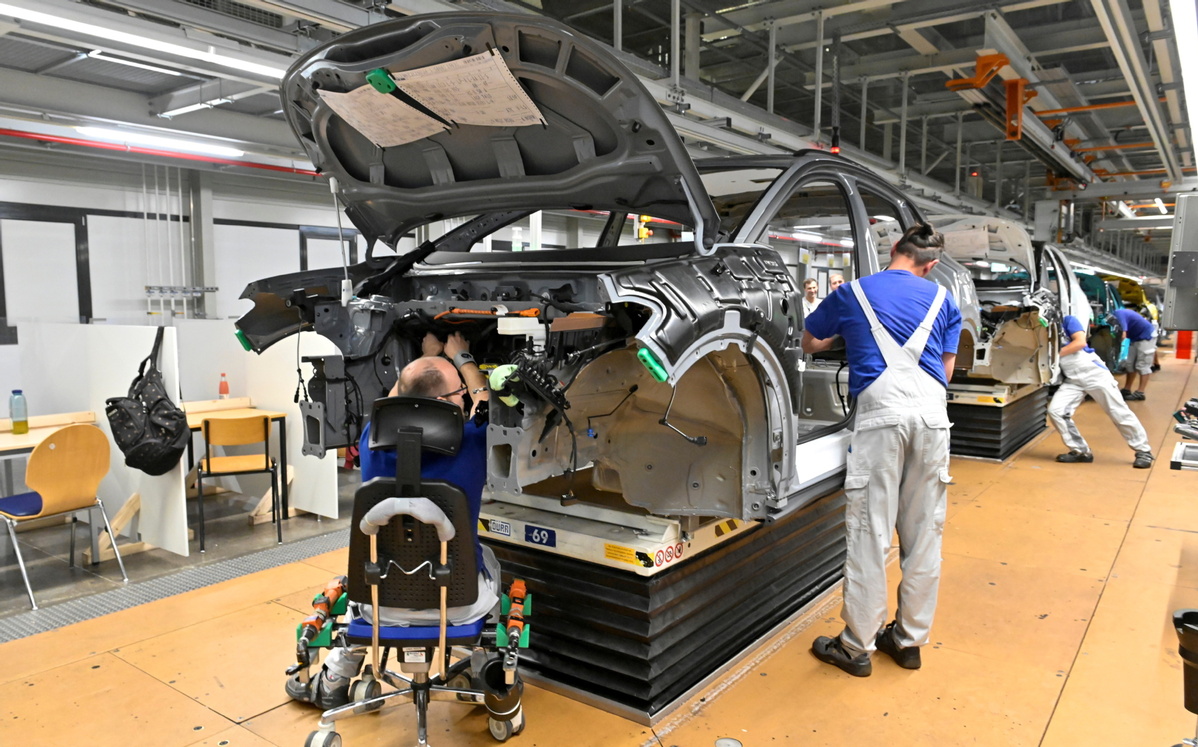Volkswagen accelerates toward electric


Auto giant Volkswagen has revealed plans to stop making cars with petrol and diesel engines in Europe as soon as 2033, adding its flagship brand name to a growing list of manufacturers shifting toward electric vehicles.
Carmakers around the world face increasing pressure to fight climate change and curb emissions, and Volkswagen's target to phase out combustion engines follows reputational harm caused to its brand by the "dieselgate" scandal.
Klaus Zellmer, a Volkswagen board member for sales and marketing, revealed the timeline in a German media interview.
"In Europe, we will exit the business with internal combustion vehicles between 2033 and 2035, in the United States and China somewhat later," Zellmer told Germany's Muenchner Merkur newspaper on Sunday.
He added: "In South America and Africa, due to the lack of political framework conditions and infrastructure, it will take a little longer. As a mass-market manufacturer, Volkswagen has to adapt to different speeds of transformation in different regions.
"Our competitors who sell vehicles mainly in Europe, for example, will certainly have to face a far less complex transformation."
The phaseout schedule affects Volkswagen-brand cars, while there are also transition plans in place for other brands owned by the Volkswagen Group, the newspaper reported.
Last week, Volkswagen's smaller sister company Audi said that it would stop producing cars with combustion engines in 2033, and that from 2026 it would only launch fully electric vehicles.
The comments follow similar announcements from other auto manufacturers around the world, such as United States' carmaker Ford and Sweden's Volvo, which have announced plans to go all-electric in Europe from 2030.Jaguar Land Rover and GM have made similar pledges.
Volkswagen had already said in March that it had set a target for electric vehicles to account for 70 percent of its European sales by 2030.
In 2015, Volkswagen admitted to illegally fitting millions of diesel vehicles around the world with emissions-cheating software, in what is known as the "Dieselgate" scandal. It cost the company billions of dollars in fines, penalties, financial settlements and buyback costs.
It is now seeking to rebuild its reputation by investing a large percentage of its budget in electric and hybrid cars along with digital technology, such as self-driving systems, according to the German broadcaster Deutsche Welle.
Public outcry over climate change has prompted the shift to electric vehicles, and European Union policy has forced carmakers to push ahead with development of low-emission technology.
The EU is expected to unveil stricter anti-pollution targets and regulations on July 14, and carmakers will likely face even more severe curbs, according to news agency reports.
































